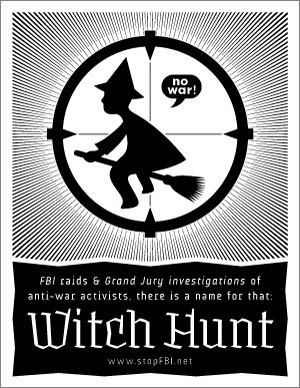Dear user,
You are contacted because you are still registered with wikileaks-forum.com. This is to warn you that this website can not be trusted. People joined this forum in the belief that they were becoming members of WikiLeaks' official forum, a place to express and nurture their support. Regrettably, this is not true anymore.
The recent news of alleged LulzSec spokesperson Topiary's arrest took the media spotlight away from WikiLeaks supporters' demonstration against PayPal. But it also raises questions about how online laws are applied, and the credibility of those who enforce them.
While doubts remain over whether the police have arrested the right person, Topiary's twitter account has been reduced to a single tweet: "You cannot arrest an idea."
Topiary served as LulzSec's witty media front-man and his clever humour was tempered by a strong sense of justice.
"Laws are to be respected when they're fair, not obeyed without question," he said in a recent interview. "Revolution, to me, is bringing down the big guy while not forgetting to stand up for the little guy."
Topiary's arrest is just the latest in a string of arrests which are set to turn the spotlight back onto the US justice system. Many Anonymous supporters doubt the evidence being used against alleged juvenile hackers, while the WikiLeaks legal case against financial services like Visa, PayPal and Mastercard will generate even more public scrutiny.
 Today, CNN reports that a "Yemeni colonel and two soldiers were killed in clashes with Islamic militants in the southern province of Abyan." According to one official, "Clashes are intensifying in the city and the government is trying to put an end to the militants' control over the city."
Today, CNN reports that a "Yemeni colonel and two soldiers were killed in clashes with Islamic militants in the southern province of Abyan." According to one official, "Clashes are intensifying in the city and the government is trying to put an end to the militants' control over the city."
On Saturday Yemeni army forces killed 18 ‘terrorists’ in Zinjibar, the capital of the southern Abyan province, and another three in Lawdar, a second provincial city, according to Reuters. In a text message from the Yemeni Defense Ministry, officials said that the army had also destroyed a weapons and ammunition cache in Zinjibar.
Yemeni President Saleh sustained serious burns and shrapnel injuries in an attack on his presidential complex in Sanaa on June 3. Saleh was transported to Saudi Arabia and is “in stable condition and recovering,” the Yemen’s ambassador to Britain told Reuters. But, according to an informed source, identified by Agence-France Presse as a Yemeni expatriate in Riyadh, the health of Yemeni President Ali Abdullah Saleh was 'bad.' (Source: Al Arabiya).
Colonel mustard in the library with the candlestick
While the government has blamed the al-Ahmar tribe for the attack, Al Jazeera reports that some residents in Sanaa suspect that the raid could actually be orchestrated by the president himself.
 Antiwar and international solidarity activists, subjects of a federal grand jury investigation that alleges they may have provided “material support for terrorism,” uncovered documents on FBI guidelines and investigation practices left behind in an activist’s home that was raided in September of last year. The documents illuminate how the FBI has conducted surveillance of the activists being targeted in the investigation and further prove the grand jury is being used as a tool to go after political groups.
Antiwar and international solidarity activists, subjects of a federal grand jury investigation that alleges they may have provided “material support for terrorism,” uncovered documents on FBI guidelines and investigation practices left behind in an activist’s home that was raided in September of last year. The documents illuminate how the FBI has conducted surveillance of the activists being targeted in the investigation and further prove the grand jury is being used as a tool to go after political groups.
On September 24 of last year, the home of Lindon Gawboy and Mick Kelly, an activist who helped to organize a mass demonstration outside the Republican National Convention in 2008, was raided and subpoenaed. Gawboy was awoken by FBI pounding on her door. She came to the door and asked for a search warrant. The FBI ignored her request for a warrant and proceeded to use a battering ram, which took the door off its hinges and shattered a nearby fish tank.
The agents raiding Gawboy and Kelly’s home emptied file cabinets and desks and stacked files around the apartments. They set up and went through individual documents taking files away that were of interest to them. At some point during this process, an agent’s papers on the investigation became mixed in with Kelly’s files. And, presumably by chance, Gawboy found the revealed documents just weeks ago.

In the final week of January, twelve anti-war, labor and international solidarity activists were expected to appear before a grand jury in Chicago. They refused to go before the grand jury.
These activists from Chicago, the Twin Cities in Minnesota, and other areas have been subpoenaed over the past months. Several of the activists had their homes raided. Documents, cell phones, storage disks, computers, and children's artwork were seized from their home. The subpoenas indicated the FBI was looking for evidence that the activists had provided "material support for terrorism." And, it was discovered that the FBI had an informant, who went by the name of "Karen Sullivan," infiltrate an anti-war group in the Twin Cities.
This "witch-hunt" began on September 24th and, since then, U.S. Attorney Patrick Fitzgerald has been working to get activists to testify before a grand jury in Chicago. So far, all the activists have refused to participate in this "fishing expedition."
WL Central recently began posting coverage of this story. And, as the grand jury investigation into WikiLeaks and those who might be linked to WikiLeaks advances, it seems appropriate to provide context and shine a light on other stories of suppression of freedom and civil liberties in the United States.
Here is a profile of one of the activists (which I wrote and originally posted at OpEdNews.com in January):

Update 2 - May 11 - 1:50 PM New York Time
This statement was posted by the Committee to Stop FBI Repression yesterday night. It is the latest on Hatem Abudayyeh, a Palestinian solidarity activist, who is one of twenty-three activists that has been subpoenaed to appear before a grand jury in Chicago.
From the statement:
On Friday, May 6th, the bank accounts of Hatem and Naima Abudayyeh of Chicago were frozen. The bank manager at the TCF (Twin Cities Federal) branch could not explain what had happened but stated that the Bank Security Act prevented him from releasing any assets.
In a strange turn of events, the bank admitted announced today (May 10) that they shut down the accounts, stating they no longer want to provide banking services to the Abudayyeh family. Simultaneously, TCF management informed the Abudayyehs today that they were issuing them a check for the value of their accounts.
Calls from across the United States ha an impact. A Code Pink activist from Washington, DC called US Attorney Patrick Fitzgerald's office and was told, "We've received hundreds of calls." The Office of Foreign Assets Control (OFAC) received numerous calls as well and "journalists from a National Public Radio affiliate, Al Jazeera and other agencies contacted them for an explanation."
The family's attorney, Michael Deutsch, says, "In my opinion, the bank did not act out of the blue. I suspect that the FBI and U.S Attorney investigation caused the bank to overreact and illegally freeze the Abudayyehs’ banking accounts that had been there for over a decade."
On January 20, WL Central reported "Bloomberg discloses FBI Contractor admits to Spying on Swedish".
Yesterday, Bloomberg reporter Michael Riley 're-drafts' his flawed article as a magazine story in Bloomberg Business Week.
On the day the original Bloomberg article appeared, Andy Greenberg of Forbes reported that he interviewed Robert Boback of Tiversa about the original Bloomberg article claims:
Gaspar Llamazares, a Spanish politician and member of the Communist Party of Spain, is the focus of part of a recent cable released by WikiLeaks.
The cable from Madrid covers a meeting between Ambassador Solomont and Spanish Interior Minister Alfredo Perez Rubalcaba that touched on several topics including Haiti, Al Qaeda, training of security forces in Afghanistan and Iraq and Guantanamo detainees. It also featured a conversation on Llamazares, whose photo had days ago been reported to have been used by an FBI forensic artist “to create an age-processed image of Osama bin Laden" for a "Rewards for Justice" website featuring photos of most wanted terrorists.
From 10MADRID49 on January 18, 2010:
In a report on Wikileaks, Bloomberg disclosed on January 20 that U.S. authorities may now be using contractors to spy on Swedish servers looking for creative ways to prosecute Wikileaks and Julian Assange.
Bloomberg reports that Robert Boback, Chief Executive Officer of Tiversa, Inc., a spying and surveillance firm that contracts with the FBI, declined to say who his company's client was when his firm surveilled four unidentified Swedish servers.
According to Boback, during a 60 minute period on February 7, 2009:
"Tiversa’s monitors detected four Swedish computers engaged in searching and downloading information on peer-to-peer networks. The four computers issued 413 searches, crafted to find Microsoft Excel spreadsheets and other information-rich documents among some of the 18 million users the company estimates are on such file-sharing networks at any given moment."
Tiversa also claims that:
Allegations and Investigation
On Dec. 16, the FBI raided a Texas server-hosting company in hopes of finding evidence to advance an investigation into the hactivist groups engaged in various attacks against Wikileaks-unfriendly institutions and individuals.
The investigation seems to have been set in motion as a direct result of PayPal's actions; PayPal is said to have supplied the FBI with various IP addresses hosting an IRC chat for current and prospective hacktivists. At least one hard drive was seized.
Theme by Danetsoft and Danang Probo Sayekti inspired by Maksimer